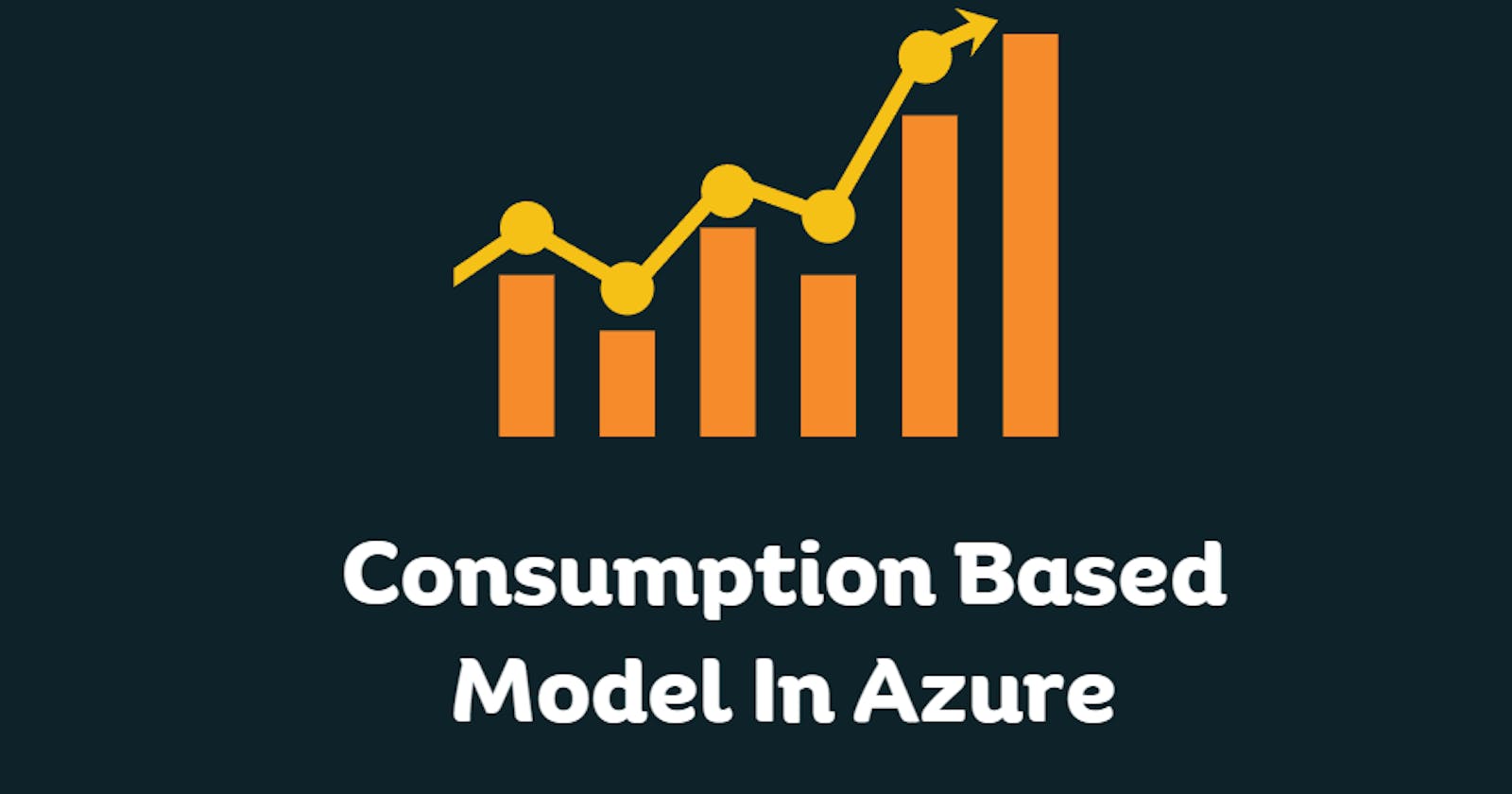Understanding Azure's Consumption-based Model: A Cost-Effective Solution for Cloud Computing
Table of contents
No headings in the article.
In today's digital age, businesses are rapidly moving their operations to the cloud. Cloud computing allows organizations to reduce their overhead costs by using remote resources and paying only for what they use. It enables organizations to deliver services more efficiently and quickly to their customers and stakeholders. The cloud can facilitate collaboration and innovation among teams and partners across different locations and devices. It provides measures to enhance the security and reliability of data and applications by using encryption, backups, and virtual private clouds. Cloud computing provides flexibility and scalability to organizations to meet their changing needs and demands. Microsoft Azure is one of the leading cloud providers that offer a consumption-based model, which has become a game-changer in the cloud computing industry.
What is Azure's Consumption-Based Model?
The consumption-based model in Azure is a game-changer for businesses of all sizes. It allows users to pay for only what they consume, making it a flexible and cost-effective solution. Imagine having the ability to scale up or down your resources as needed, without having to worry about overpaying for unused capacity. With Azure's consumption-based model, you only pay for the resources you actually use, whether it's virtual machines, storage, or networking. This means that you can easily adjust your resources based on your workload demands, such as scaling up during peak periods or scaling down during off-peak periods.
For example, let's say you're a startup that's launching a new app. With Azure's consumption-based model, you can start small and only pay for the resources you need, such as a single virtual machine and a small amount of storage. As your user base grows, you can easily scale up your resources to accommodate the increased demand, without having to worry about purchasing additional hardware or software licenses.
Benefits of Azure's Consumption-Based Model
Cost-Effective: In terms of cost-effectiveness, Azure's consumption-based model is a game-changer. Rather than having to make significant upfront investments in hardware and software, businesses can pay for only what they consume. This means that there are no upfront costs, and businesses only pay for the resources they use. This can lead to significant cost savings, particularly for small businesses and startups that may not have the financial resources to make large upfront investments.
Flexibility: First and foremost, the consumption-based model of Azure is highly flexible. Businesses can easily scale their resources up or down based on their workload demands. This means that during periods of high demand, such as holiday shopping or tax season, businesses can quickly scale up their resources to accommodate increased traffic. Conversely, during slower periods, businesses can scale down their resources, saving money on unused capacity. This level of flexibility ensures that businesses only pay for what they need when they need it.
Transparency: Another benefit of Azure's consumption-based model is transparency. Businesses can easily monitor their usage and costs in real-time, giving them greater visibility into their spending and allowing them to make more informed decisions about their resources. This level of transparency also allows businesses to identify potential cost savings and make adjustments accordingly.
For example, let's say a small business starts using Azure's consumption-based model for their cloud computing needs. They start small, with a single virtual machine and a small amount of storage. As their business grows and their workload demands increase, they can easily scale up their resources to accommodate the increased traffic. During slower periods, they can scale back down, saving money on unused capacity. This level of flexibility and transparency ensures that they only pay for what they use, when they use it, leading to significant cost savings over time.
No upfront costs: The consumption-based model does not require businesses to make any upfront investments or commitments. This means that businesses can start using Azure's cloud services immediately, without incurring any initial costs.
Easy to manage: Azure's consumption-based model is incredibly easy to manage. Businesses can easily manage their resources through a user-friendly interface, allowing them to quickly make adjustments as needed. This ease of management ensures that businesses can focus on what matters - delivering value to their customers - rather than spending valuable time and resources on managing their cloud computing infrastructure.
Is Azure's Consumption-Based Model Right for Your Business?
The consumption-based model in Azure is highly beneficial for businesses that want to optimize their cloud usage and reduce costs. With this model, businesses only pay for the resources they use, rather than committing to a fixed amount of resources upfront. This means that they can scale their usage up or down based on demand, which is particularly useful for businesses with fluctuating workloads.
Additionally, the consumption-based model eliminates the need for businesses to invest in expensive hardware and infrastructure, as they can simply pay for the cloud resources they need on a pay-as-you-go basis. This not only saves costs but also reduces the time and effort required to manage and maintain on-premises infrastructure. Overall, the consumption-based model in Azure provides businesses with flexibility, cost savings, and agility, making it a highly attractive option for organizations of all sizes.
Conclusion
Azure's consumption-based model is a cost-effective and flexible solution for businesses looking to move their operations to the cloud. With its pay-as-you-go pricing model, businesses can easily manage their cloud computing costs and scale their resources up or down as needed. By offering complete transparency and no upfront costs, Azure's consumption-based model has become a game-changer in the cloud computing industry.
If you want to learn about CapEx and OpEx in Azure Cloud, you can through the below thread on Twitter.
